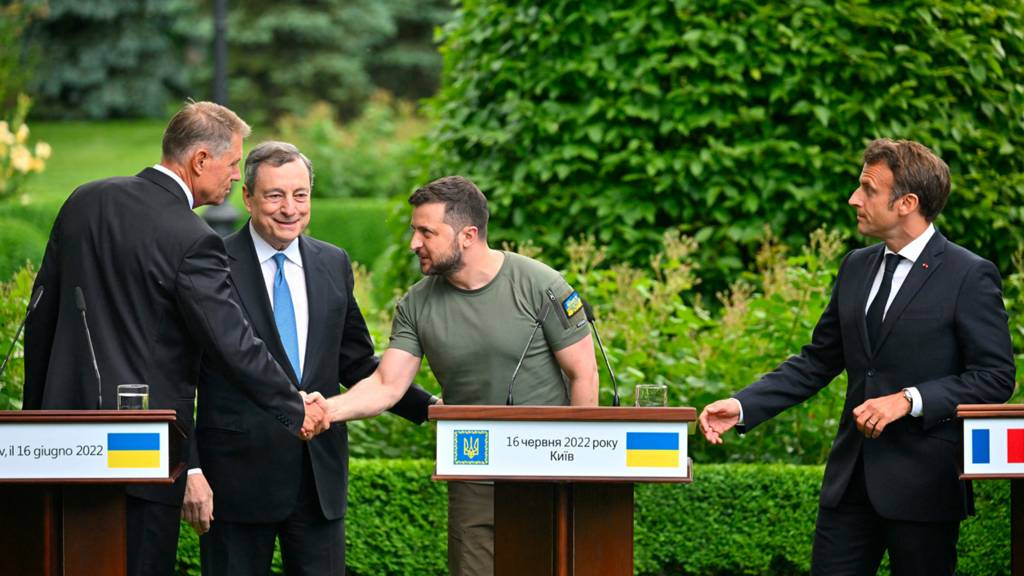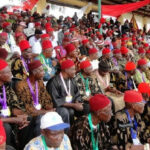
The European Commission has announced it will grant Ukraine candidate status for EU membership.
The same status will also be granted to Moldova.
According to European Commission chief, Ursula von der Leyen, the case of Ukraine is that “we all know that Ukrainians are ready to die for the European perspective, we want them to live with us, the EU”.
The bloc chief said that leaders of EU countries will then have the final say at a summit in Brussels on 23-24 June.
The announcement comes a day after leaders of the bloc’s three biggest member states — France, Germany and Italy made a long-awaited first trip to Kyiv and clearly stated their backing for Ukraine’s bid to join the EU.
France’s Emmanuel Macron insisted that it would provide “a strong, quick, expected gesture of hope and clarity that we want to send to Ukraine and its people” while Germany’s Olaf Scholz stated that “Ukraine belongs to the European family”.
The EU leaders stressed, however, that there would be conditions and that the war-torn country would not get preferential treatment over other counties that have been in negotiations to join the 27-country bloc for years.
EU to grant Ukraine and Moldova candidate status for EU membership
On Friday, June 17, from the EU’s headquarters in Brussels, Belgium, Von Der Leyen praised the country’s pre-war reforms to tackle corruption, curb the influence of oligarchs and strengthen the rights of minorities although she noted that “we want to see results on the ground”.
She also said that the country enjoys a “very robust parliamentary, presidential democracy” and that its public administration has kept the country going despite the war. She also noted that “Ukraine has a very vibrant and active civil society”.
“To conclude on Ukraine, we have one clear message and that is, yes Ukraine deserves European perspective, yes Ukraine should be welcome as a candidate country,” she told reporters.
Any country that wishes to join the EU must fulfil what is known as the “Copenhagen criteria” for a functioning market economy, a stable democracy and the rule of law, and the acceptance of all EU legislation, including accepting the euro currency. These usually require the candidate country to undertake a series of reforms.
Russia’s invasion of Ukraine, has backfired by leading to a flurry of countries looking to join the EU and the NATO military alliance.
Ukraine announced its wish to join the EU just four days after Russia launched its attack on 24 February. Kyiv filled out all the necessary and lengthy paperwork in a single month after receiving it on April 8 during a visit to the Ukrainian capital by European Commission president Ursula von der Leyen.





